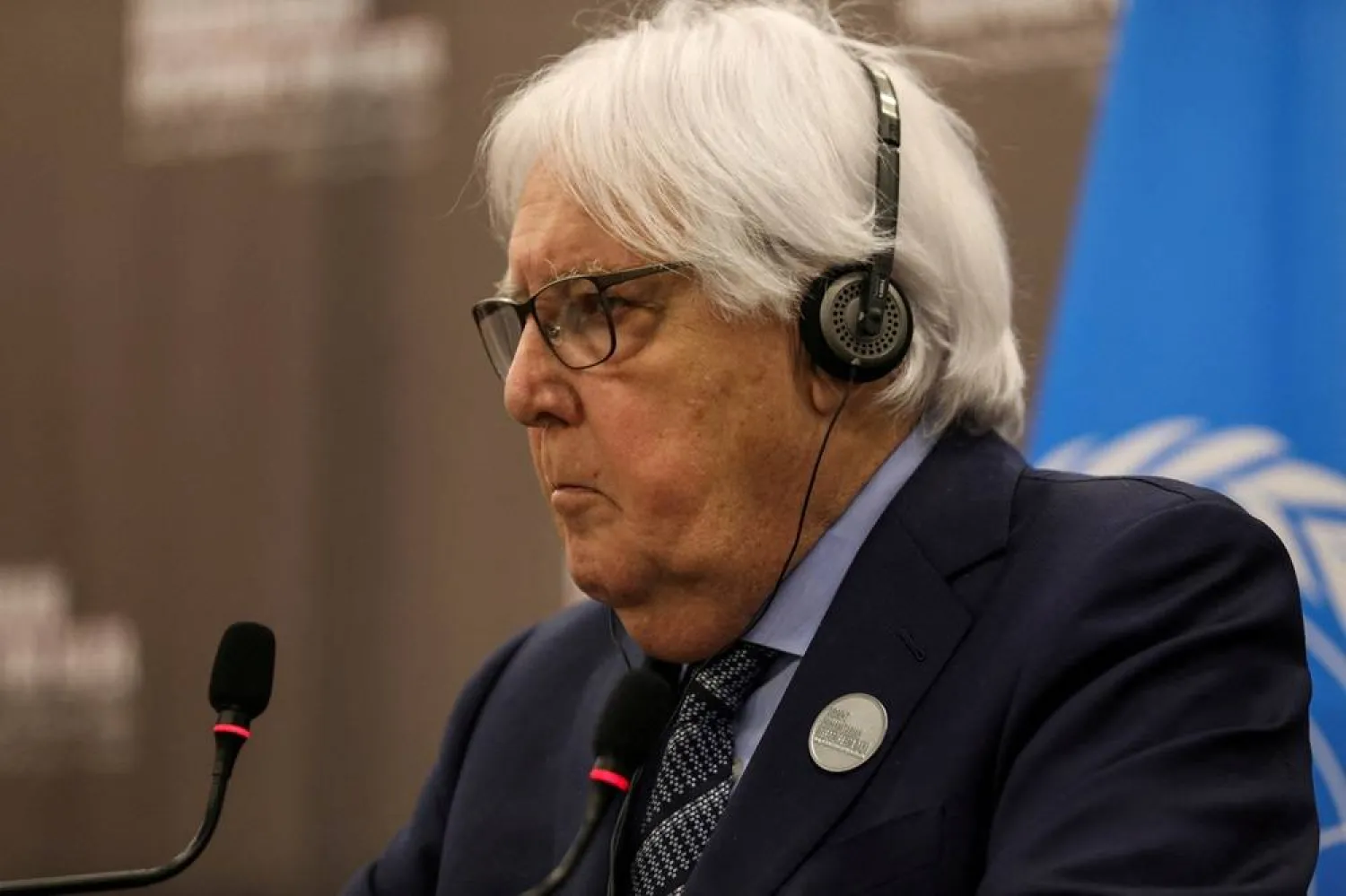The United Nations aid chief said on Wednesday he was concerned by the possible spread of the Gaza war across the region, including to the West Bank, despite aid agencies being adequately prepared for that prospect.
The West Bank, where the internationally recognized Palestinian Authority exercises limited self-rule under Israeli occupation, has already suffered its worst unrest for decades in parallel with the war in Gaza, which is controlled by Hamas.
The UN human rights office has said that 528 Palestinians, including 133 children, have been killed by Israeli security forces or settlers in the West Bank since the Gaza war began, and has "serious concerns of unlawful killings" in some cases.
"We are worried about the potential for further tragedy and deaths and the events in the West Bank, as well as, of course, the threats and the possibilities (of conflict) in Lebanon," Martin Griffiths, who heads the Office for the Coordination of Humanitarian Affairs (OCHA), told reporters in Geneva.
"There's a lot of preparedness on the aid side. That's not the problem," he said. "The problem is stopping this war getting worse and stopping the people of Palestine from their right to their future. That's the worry that I think we should all have."
Israel, which launched its Gaza military operation after the deadly Hamas-led attacks in southern Israel on Oct. 7, says it has expanded efforts to facilitate aid flows to Gaza and blames aid agencies for distribution problems inside the enclave.
Griffiths said demands for unimpeded humanitarian access to the Gaza Strip still stood.
"We want all those crossing points open, we want safety and security protocols, we want deconfliction which we can rely on, and that we want aid workers and health institutions not being victims of the war," he said, also calling for a ceasefire.
Griffiths said it was "astonishingly cruel" that, according to the Integrated Food Security Phase Classification (IPC), more than 495,000 people across Gaza were facing the most severe, or "catastrophic", level of food insecurity.
That figure is down from a forecast of 1.1 million in the previous update three months ago, but is still more than one fifth of Gaza's population.
Griffiths said the new figure was "outrageous" but that it indicated some aid was making it to Gazans.









